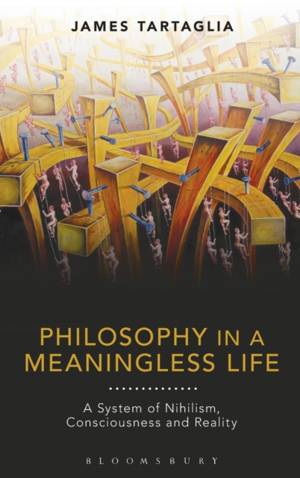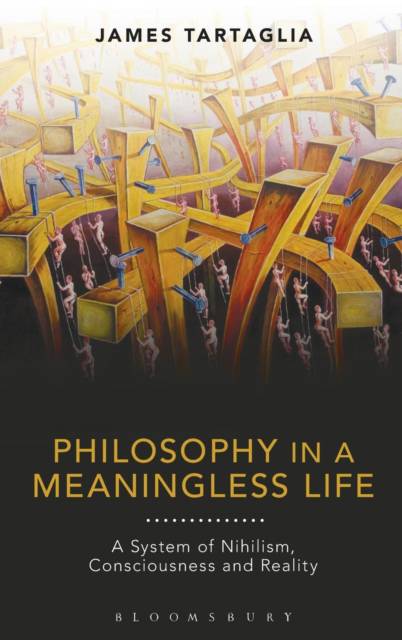
- Retrait gratuit dans votre magasin Club
- 7.000.000 titres dans notre catalogue
- Payer en toute sécurité
- Toujours un magasin près de chez vous
- Retrait gratuit dans votre magasin Club
- 7.000.0000 titres dans notre catalogue
- Payer en toute sécurité
- Toujours un magasin près de chez vous
Philosophy in a Meaningless Life
A System of Nihilism, Consciousness and Reality
James Tartaglia
Livre relié | Anglais
296,95 €
+ 593 points
Format
Description
Philosophy in a Meaningless Life provides an account of the nature of philosophy which is rooted in the question of the meaning of life. It makes a powerful and vivid case for believing that this question is neither obscure nor obsolete, but reflects a quintessentially human concern to which other traditional philosophical problems can be readily related; allowing them to be reconnected with natural interest, and providing a diagnosis of the typical lines of opposition across philosophy's debates.
James Tartaglia looks at the various ways philosophers have tried to avoid the conclusion that life is meaningless, and in the process have distanced philosophy from the concept of transcendence. Rejecting all of this, Tartaglia embraces nihilism ('we are here with nothing to do'), and uses transcendence both to provide a new solution to the problem of consciousness, and to explain away perplexities about time and universals. He concludes that with more self-awareness, philosophy can attain higher status within a culture increasingly in need of it.Spécifications
Parties prenantes
- Auteur(s) :
- Editeur:
Contenu
- Nombre de pages :
- 232
- Langue:
- Anglais
Caractéristiques
- EAN:
- 9781474247702
- Date de parution :
- 17-12-15
- Format:
- Livre relié
- Format numérique:
- Genaaid
- Dimensions :
- 156 mm x 234 mm
- Poids :
- 503 g

Les avis
Nous publions uniquement les avis qui respectent les conditions requises. Consultez nos conditions pour les avis.






